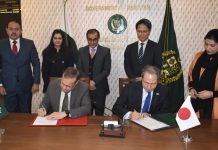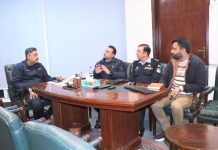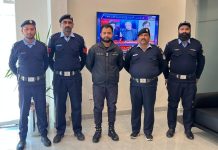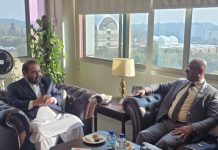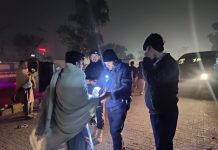By Adnan Rafique
ISLAMABAD: The Policy Research Challenge 2024, organized under the umbrella of Generation Unlimited in collaboration with UNICEF, UNFPA, UNDP Pakistan, Prime Minister’s Youth Program (PMYP), and the School of Leadership Foundation (SoLF) assisted capacity building of the youth on research while polishing their cognitive and analytical skills.
The bootcamps brought together young researchers from across Khyber Pakhtunkhwa and Punjab. A total of 15 adolescents (12-17 years of age) and 16 youth participated (18-27 years of age) and learnt research skills to drive and analyze the policy landscape around education, a news release said.
The findings of the research will be shared during a dialogue among young people and the policy makers. The recommendations from young people will contribute to positive change at both community and policy level.
Both the bootcamps focused on building the capacity of young participants to conduct meaningful research that informs policymaking.
The theme of “Education Innovation” allowed them to explore critical sectors, including education, health, and social justice. Within these areas, the participants examined essential topics like accessible and quality education, gender disparity, inclusivity, life skills-based education (LSBE), career guidance, entrepreneurship, development readiness, technology integration, and STEAM (Science, Technology, Engineering, Arts, and Mathematics) education.
The importance of pedagogical training and teaching practices was also highlighted as a key focus, ensuring that young researchers understood how to apply their findings to real-world education challenges.
Evidence is an important part of policy making. It is utmost that with 67% young people in the country, the policy is reflective of the needs of this cohort. Children, Adolescents and youth all have distinct needs which are important for a strong human capital in the country.
The policy research challenge is a means to include their voices for informed decision making while building critical thinking and analytical skills of young people, said Mome Saleem, Programme Specialist Adolescent Development and Participation.
A significant aspect of the bootcamps was the practical application of research skills. Participants were introduced to advanced research techniques like social cartography and ethnography, which enabled them to map social issues and understand the cultural context of their communities.
The bootcamps concluded with the final research proposal pitches, where participants presented their research ideas to a panel of experts, demonstrating their ability to analyze complex policy issues. Nine research proposals from the adolescent category were awarded grants of 100,000 PKR each, whereas, seven research proposals were awarded grants of 200,000 PKR each allowing participants to implement their research in real-world settings.
The event not only provided a platform for young researchers to develop their skills but also encouraged them to become change agents in their communities.
The success of the PRC 2024 Bootcamp highlights the importance of youth participation in policy development. As emphasized by Mariyam Irfan, Managing Director of SoLF, “Policy research is not just about gathering data; it’s about using evidence to create impactful, long-lasting solutions.” This sentiment was echoed by Ahsan Durrani who highlighted the role of young people in addressing Pakistan’s governance challenges through research and policy reforms.


